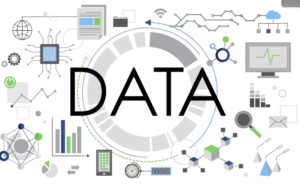In the digital age, the emergence of big data analytics has revolutionized the way businesses operate across diverse industries. The ability to analyze vast amounts of data in real-time has opened new frontiers, offering unparalleled insights and driving innovation. In this blog, we’ll explore the profound impact of big data analytics on various industries, from healthcare and finance to retail and manufacturing.

Healthcare:
1. Predictive Analytics for Patient Care:
Big data analytics in healthcare has enabled predictive analytics, allowing medical professionals to anticipate patient needs and potential health issues. This proactive approach improves patient outcomes and enhances overall healthcare delivery.
2. Drug Discovery and Development:
Pharmaceutical companies leverage big data analytics to streamline the drug discovery process. Analyzing massive datasets accelerates research, identifies potential drug candidates, and enhances the efficiency of clinical trials.
3. Personalized Medicine:
Big data analytics plays a pivotal role in personalized medicine by analyzing patient data to tailor treatment plans. This individualized approach ensures more effective treatments with fewer side effects.
Also Read: What Are the Key Characteristics of Big Data?
Finance:
1. Fraud Detection and Prevention:
In the financial industry, big data analytics is a powerful tool for detecting and preventing fraud. Analyzing transaction patterns and customer behavior in real-time helps identify and mitigate fraudulent activities swiftly.
2. Algorithmic Trading:
Financial institutions utilize big data analytics for algorithmic trading. Analyzing market trends and data allows for rapid decision-making and the execution of complex trading strategies in milliseconds.
3. Risk Management:
Big data analytics enhances risk management by providing a comprehensive view of market conditions and potential risks. This enables financial institutions to make informed decisions to mitigate risks and ensure financial stability.
Retail:
1. Customer Segmentation and Personalization:
Retailers leverage big data analytics to understand customer behavior, enabling precise customer segmentation. This, in turn, allows for personalized marketing campaigns, product recommendations, and a tailored shopping experience.
2. Supply Chain Optimization:
Big data analytics optimizes the retail supply chain by analyzing data related to inventory levels, demand forecasts, and logistics. This ensures efficient operations, reduces costs, and minimizes stockouts or overstock situations.
3. Dynamic Pricing Strategies:
Retailers use big data analytics to implement dynamic pricing strategies. Analyzing market conditions, competitor pricing, and customer demand allows for real-time adjustments, optimizing pricing for maximum profitability.
Also Read: Alternative Data in the Retail Sector
Manufacturing:
1. Predictive Maintenance:
Big data analytics transforms manufacturing with predictive maintenance. Analyzing equipment sensor data helps predict when machinery is likely to fail, allowing for proactive maintenance to avoid costly downtime.
2. Quality Control:
Manufacturers utilize big data analytics for quality control by analyzing production data. This ensures that defects are detected early in the manufacturing process, reducing waste and enhancing product quality.
3. Supply Chain Visibility:
Big data analytics provides manufacturers with end-to-end supply chain visibility. Analyzing data from suppliers to distribution channels improves logistics, reduces delays, and enhances overall supply chain efficiency.
Education:
1. Personalized Learning:
In education, big data analytics facilitates personalized learning experiences. Analyzing student performance data allows educators to tailor teaching methods to individual learning styles, improving overall educational outcomes.
2. Student Retention and Success:
Big data analytics helps educational institutions identify factors affecting student success. This includes analyzing attendance patterns, academic performance, and engagement levels to implement strategies for student retention.
3. Operational Efficiency:
Universities and educational organizations leverage big data analytics for operational efficiency. Analyzing administrative data helps optimize resource allocation, improve planning, and enhance overall organizational effectiveness.
Conclusion:
In conclusion, big data analytics has permeated virtually every industry, reshaping how businesses operate and make decisions. From personalized medicine and fraud detection to dynamic pricing and predictive maintenance, the impact is profound and multifaceted. As technology continues to advance, the role of big data analytics will only become more integral, driving innovation, efficiency, and competitiveness across diverse sectors. Embracing the transformative power of big data analytics is not just a choice—it’s a strategic imperative for industries seeking to thrive in the data-driven landscape of the 21st century.


